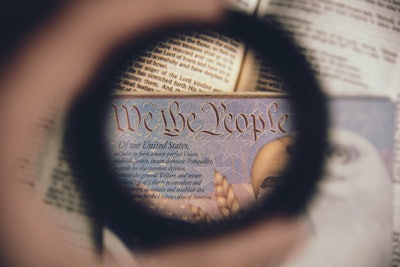
March Madness is proving lucrative for some of its standout stars, thanks to a 2021 Supreme Court ruling that led the NCAA to end its longstanding ban on student-athletes earning money from endorsement deals.
According to an article published by Louisiana Illuminator, Doug “Dougie Buckets” Edert, who led the Saint Peter’s Peacocks to the Elite Eight, has signed deals with Buffalo Wild Wings and the website Barstool Sports. Drew Timme, the mustachioed star forward at Gonzaga, is helping sell razors for Dollar Shave Club. And Deja Kelly, a star sophomore at the University of North Carolina, became one of the first college endorsements for Dunkin' in February when she agreed to promote the brand’s doughnuts and coffee.
But the Supreme Court ruling doesn’t mean anything goes, wrote Sam Ehrlich and Neal Ternes, assistant professors at Boise State University and Arkansas State University, respectively. The NCAA’s new endorsement policy simply pushes its authority over so-called name, image and likeness deals to universities and states. And many have established their own policies as to what deals athletes can and can't enter into.
As reported by Louisiana Illuminator, at least 92 universities have created rules governing what kinds of deals athletes can enter into, and 25 states have passed laws or issued executive orders that affect all public and private schools under their jurisdiction.
"We study the interaction between sports and law," Ehrlich and Ternes wrote. "While many of these endorsement deal restrictions are innocuous, such as requiring financial literacy classes, we believe others may actually be unconstitutional."
In June 2021, the Supreme Court ruled that the NCAA couldn't limit the kinds of benefits universities offer students. That prompted the NCAA to simply drop the draft policies governing name, image and likeness deals it had been working on rather than risk further litigation.
In doing so, the NCAA left it up to states or individual universities to establish their own rules. That opened the door for college athletes across the country to begin signing endorsement deals — as long as they don’t run afoul of rules at their school or in their state.
While the NCAA is considered a private entity not bound by the First Amendment, states and public schools are. According to Ehrlich and Ternes, that means any restrictions they place on athletes’ endorsements — a form of commercial speech afforded some protections by the Constitution – need to respect athletes’ free speech rights. "Broadly speaking, we see three types of restrictions that appear problematic," they wrote. "The first type prevents deals with brands that are rivals of one that already has a deal with a university. The second group forbids contracts with “vice” industries like alcohol and gambling. And the third prohibits partnerships with anything that might reflect poorly on the educational institution."
Two legal concepts reveal the problems with these restrictions: “prior restraint” and “overbreadth.”
According to the article authors, when government entities — including public universities — restrict speech before it happens, rather than punish speakers for objectionable and unprotected speech after it is made.
"That’s why a prior restraint — like a policy that prevents athletes from signing certain types of endorsement deals — will be scrutinized more heavily by courts than if, say, a school simply forces an athlete to stop endorsing an objectionable product after the fact," Ehrlich and Ternes wrote. "While that doesn’t mean a prior restraint is never allowed, courts would require schools to show they have a very good reason to have the restriction."
Courts also don't like it when restrictions on speech are written too broadly, meaning that they affect speech other than the intended target. A 1995 appellate court ruling struck down a Michigan school’s campus speech code because it gave university officials too much power to determine what is deemed offensive — which meant they could hypothetically use the policy to restrict the most protected form of speech: political speech.
All three restrictions listed above could potentially be broad enough to cover political speech, according to the authors. But it’s the third category that poses the biggest problems because of the vagueness of language like “reasonably considered to be inconsistent with the values or mission of a postsecondary educational institution or that negatively impacts or reflects adversely on a postsecondary education institution or its athletic programs.” Virtually any endorsement an athlete might consider could be deemed “inconsistent” with the values of a university.
"It’s not surprising that schools wouldn’t want to be linked to a provocative company or a product they consider inappropriate," Ehrlich and Ternes wrote. "But granting administrators too much editorial power over the kinds of deals athletes are allowed to sign can easily stray into the kinds of areas that the Constitution explicitly protects."





































